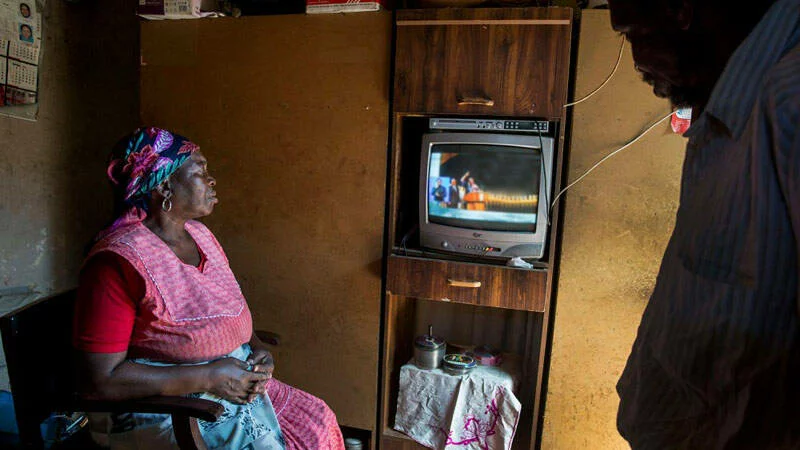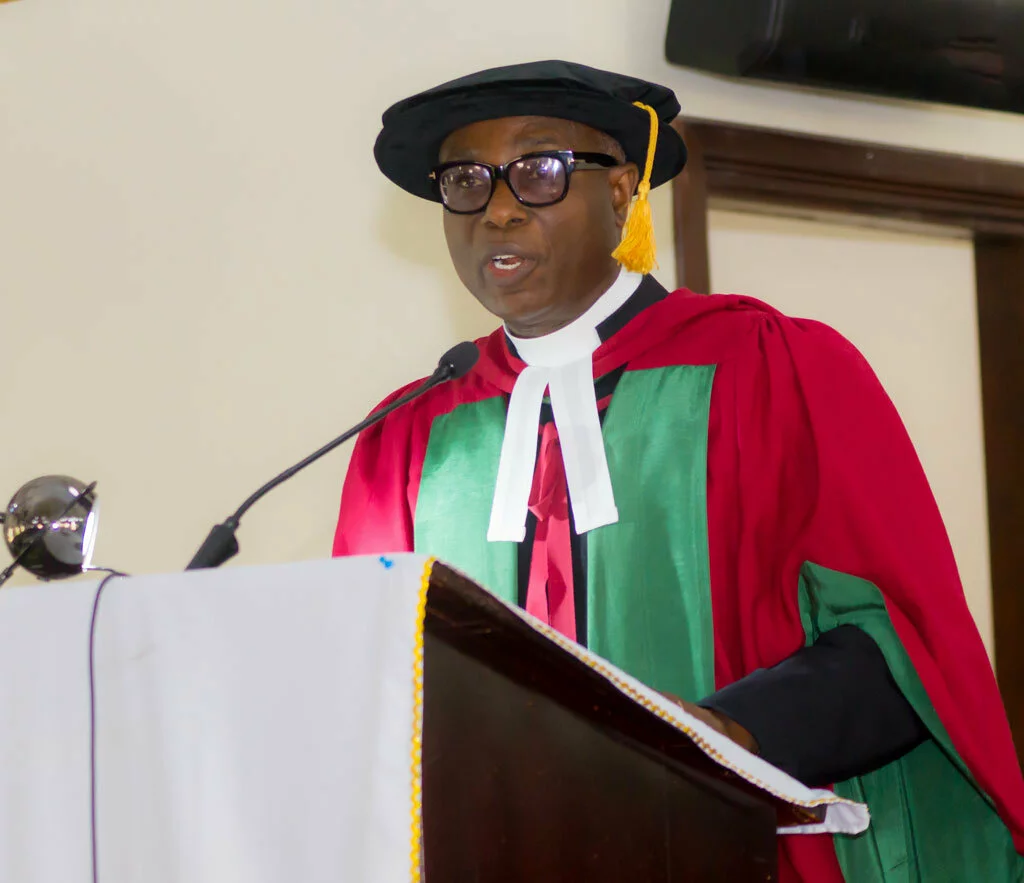A person can bless those he loves and curse those he hates. Even someone with an evil spirit can use it to help a person he likes to succeed.
Anyone who curses does it with bayie (witchcraft). If whatever the person may say happens, it is bayie. We call some people anogya [mouths of fire]. What such people always say happens…That is anogya… If you are an old woman in the house and the young in the house don’t prosper, they will regard her as a witch. See Patrick Atuobi, Anthony Obeng Boamah and Sjaak van der Geest, Life, Love and Death: Conversations with Six Elders in Kwahu-Tafo, Ghana. Amsterdam: Het Spinhuis, 2005).
The power to “bless and curse” is not just a biblical feature in relationships but also exists very much in African philosophical thoughts and practices. As I noted in my previous post, “Witchcraft: Tension between Protection and Destruction,” how imprecatory prayers which constitute an important feature of libation pouring among the Akan of Ghana, for example, is also integral to certain streams of Pentecostal/charismatic spirituality too. The power of the spoken word, I have discussed in Sighs and Signs of the Spirit defines the Pentecostal understanding of the authority of the believer. The believer and especially the “anointed of the Lord” can speak for things to happen (See J. Kwabena Asamoah-Gyadu, chap. 6).
Practices of blessings and curses
In the epigraph for this blog, a team of anthropologists from Ghana and Holland access the thoughts of local elders on the powers of blessing and cursing in traditional society. The first thing we see in my selection of text for the epigraph is the belief in the effectual nature of the powers of blessing and cursing in traditional African societies. Those described as anogya in the epigraph are here in the traditional imagination also considered as possessing the power of witchcraft because they can pronounce curses on their enemies for these pronouncements to take effect. When success eludes young people in the family, the understanding could be that an elderly woman in the house, who may be anogya and therefore possesses the powers of witchcraft may have spoken negative things against the lives of the young. In other words, their lack of progress and prosperity may be explained in terms of the workings of a family witch.
In contemporary Pentecostal prophetic Christianity, much energy is expended on verbal reversals of curses for those needing deliverance and the pronouncement of death on real and imaginary enemies. The words of sermons are literally “received” into one’s spirit, and periodic declarations of positives and success is now a very important feature of charismatic worship. A number of my blogs have referred to the use of media by the new prophets who have virtually redefined the traditional meaning of televangelism as the proclamation of the word of God on television. In contemporary African Christianity of the Pentecostal/charismatic kind, TV ministries now feature pastors and prophets conducting healing, exorcism and deliverance services without any attempt to hide the identities of these victims of demonic affliction and witchcraft. On Monday, August 21, 2017, I watched one of Ghana’s many young prophets express these traditional ideas of blessing and cursing within a Christian context on television. Prophet Mafred Acheampong leads the Fruit of Christ Ministry International in Accra, Ghana. He is featured around the clock on a number of stations on Ghana Multimedia TV which has virtually been colonized by prophets. On this day he appeared on Rock TV, and he was preaching to his congregation in a pre-recorded service on the theme: “Pray for Vengeance on Your Enemies.” His text was from Jeremiah 11:19-20. The passage reads as follows:
Let us destroy the tree and its fruit,
let us cut him off from the land of the living,
that his name be remembered no more.
But, you O Lord Almighty, you who judge righteously
and test the heart and mind,
let me see your vengeance upon them,
for to you I have committed my cause.
Jeremiah was here requesting God to take revenge on his behalf against his enemies who were plotting against him. The words used by the enemies in verse 19 would qualify as coming from anogya, people with the power to curse others by words of fire. The word fire here is not merely analogical. African Pentecostal/charismatic pastors frequently advertise programs meant to “fire one’s enemies.” I have attached a sample to this blog. The reasons why such biblical passages are preferred in prophetic preaching in contemporary African Christianity is not hard to see. Africans believe very much in the relationship between witchcraft and use of negative words or curses. In his exposition, Prophet Akyeampong referred to the plot against Jeremiah as “epo bone” meaning “evil plot.” As is the manner of preaching at these prophetic services there are responsive declarations as the preacher goes along. Having read the passage several times, Prophet Akyeampong declares, with responses of “Amen” screams from the congregants: “any evil plots against your progress, marriage, business, education by your enemies on your life shall be destroyed in the name of Jesus!” “In the name of Jesus” he continued, “that person will die.” The enemies of Jeremiah said, “let us destroy the tree and its fruit”. He then applies the passage directly to the congregants: “look at what they have done to your children.” He explained: “education is not everything; there are people in suit and tie who are consulting diviners seeking answers to the problems from shrines.”
The inferences here was to the fact that there may be people at this service whose children were struggling in life. They may have been educated and have good jobs—that is what “suit and tie” means in this context—and yet they would not seem to know where their lives may be heading. The power of witchcraft explains a lot in African societies and the churches reinforce the belief of accusations through such spiritual warfare hermeneutics. Prophet Akyeampong noted how the problems of people in suit and tie have driven them to the courts of “filthy” shrines where they consult “uneducated” diviners and priests for answers to their problems. He then leads the congregation to shout: “as I stand here, may the anointing I am receiving break every plot on my life in Jesus name!” Prophet Akyeampong seemed very aware of public criticism against prayers of vengeance within contemporary Christianity especially as they relate to family members suspected and in many cases accused of being witches. He, therefore, goes into some apologetics on why cursing your enemies, as Jeremiah presumably did, must not be considered un-Christian: “if you do not pray against your enemies, they will destroy you; even Paul cursed his enemies; if a witch is against you, do not pray for them; kill them before they kill you; if they live long, you will have troubles.”
This introduces another dimension of anogya in the Christian context. In Pentecostal/charismatic discourse generally, the words of the Christian have performance effects. At such prophetic meetings, congregants are therefore frequently invited to call or invoke the fire of God upon their enemies. These prayers are extemporaneous, aggressive and prolonged. The bodily expressions associated with them include swift movements up and down the church auditorium and persistent handclapping. One explanation for the clapping is that as one “fires” his or her enemies with words, the clapping translates into spiritual slaps and the harder you clap, the more your enemies feel the heat. “A man’s enemies shall be those of his own household,” Jesus said (Matthew 10:36). In Pentecostal prophetic hermeneutics, this resonates with the belief that “the ant that bites a person is the one hidden in his or her own clothes.” Thus in Ghana, the witch is popularly called “ofie nipa.” “Ofie” means home and “nipa” is person. It is a negative expression that refers to witches as those belonging to one’s family. If a person is referred to an “ofie nipa” in Ghana, it amounts to being accused as possessing the power of destructive witchcraft. Against the backdrop of this biblical and traditional belief, Prophet Akyeampong led his congregation in prayer using the principle of anogya combined with the clapping as they made their declarations:
“Lord, anybody in my mother’s house; anybody in my father’s house; who is sitting on my progress in life, if I clap my hands and pray, Holy Ghost fire break their ropes in Jesus name.”
The reference to “ropes” in this declaration is also very important. If witches want to hamper your progress, they tie you up spiritually, and therefore you stagnate or even retrogress in life. I have found the proliferation of prophets in Ghana’s media very intriguing. These young prophets virtually dominate the private TV stations, and their services are available twenty-four hours a day. They broadcast programs previously held at their churches but also conduct heavy advertising during these programs inviting the general public to come and consult with them and have their life’s quagmires dealt with. On this occasion, the two areas that Prophet Akyeampong touched on most were lack of employment and poverty. “When the witches touch these two areas,” he told the congregants and viewers, “you are finished.”
Conclusion
My conclusion in dealing with these phenomena is that they have come to dominate and even define what counts as Christianity in the popular imagination in much of sub-Saharan Africa. Beyond that, the access to television, in particular, facilitates the dissemination of these forms of indigenous Christian expressions and reinforces beliefs in witchcraft and the vengeful manner in which to deal with it in African societies. The monolithic and simplistic understandings and applications of scripture is very disturbing, but the resonance that these things have with traditional African worldviews on causality means it is going to take some effort to deal with their effects on the psyche of peoples and communities.





i want to share my amazing experience with Dr Jumba my husband was cheating on me and when i found out we had a fight which lead to him filling for a divorce i cried and fell sick when i was searching about love quotes online i saw people talking about him and his great work whose case was similar to mine they left his contact info i contacted him and he told me not to worry that after 24hrs he will cancel the divorce and be back to me after i did everything he asked me to do to my greatest surprise the next day evening it was my husband, he knelt down begging me to accept him back,thank you once again Dr Jumba you are indeed a blessing to me he can also help you contact
[email protected] or https://drjumbaspellhome.wordpress.com . +1 908 517 4108
I was at the verge of losing my marriage when Dr.Excellent stepped in and rescued me. My husband had filed for divorce after an unending dispute and emotional abuses we both suffered due to misunderstandings. He left the house and refused to come back. I sought for Dr.Excellent knowing I don’t wish to suffer another penury due to divorce cases and losing my man. I complied with his work procedures which was very easy and he worked for me. The love and connection between me and my partner was restored and he came back and got the divorce case canceled. It’s all for a fact that Dr.Excellent is honest and transparent in helping people and you too reading this can get the solution you seek in restoring joy and happiness in your marriage or relationship. contact Dr.Excellent for help now. Here his WhatsApp: http://wa.me/+2348084273514 “Or email him at: [email protected] ,Read more:https://bestlovespelldr.weebly.com